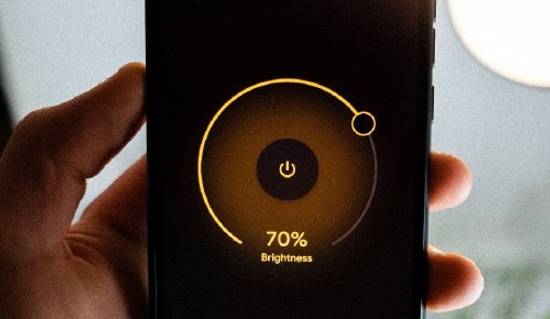
For most of us, having functioning lights and other electrics is enough to ask for – but how much could things be improved?
It’s not until you visit someone else’s home or see a video online showing off new and creative gadgets, smart devices, lighting and so on, that you realise how much better you could have it.
It’s not just to show off either, these devices often save time and energy. They’re a worthy investment, as they make life that little bit easier.
So if you’re looking for ideas on how to improve things for your home or business, read on for some tips.
Chances are, you’ve already got one or two smart devices that you use in your daily life. Unless you’re using a very old one, this includes your mobile phone too.
In fact, your phone can become the remote control for a lot of smart devices. So you can easily turn things off, on, monitor activity, and set timers. With a smartphone, you’re practically halfway there already.
The Internet of Things (IoT) has been a game-changer for smart homes, the IoT refers to the fact that various physical devices – or “things” - now have sensors and software built in, that connect to the internet in order to update and communicate with each other. This is the case for most smart devices for use in the home.
Here are some of the latest advancements in smart home technology:
A smart thermostat is a device that allows you to control your home's heating systems remotely through your smartphone or other connected devices. With a smart thermostat, you can adjust the temperature of your home from anywhere, at any time.
These thermostats also have the ability to learn your preferences and adjust accordingly, helping you save energy and money on your utility bills.
Smart meters measure and monitor your home's energy usage in real-time. Unlike traditional meters, which require manual readings, smart meters automatically send usage data to your energy supplier, giving you a more accurate and up-to-date understanding of your energy consumption.
This can help you identify areas where you may be using too much energy and make adjustments to reduce your overall usage.
many people use them just for fun and to play music, these virtual assistants can help you control various devices, such as smart lights, thermostats, and entertainment systems, with just your voice.
Security cameras, doorbells, and smart locks have become more popular in recent years, allowing homeowners to monitor their homes remotely and control access via smartphone.
These devices can be controlled remotely or set to turn on or off at specific times, making your home more energy-efficient. It can also add security by making it look like someone’s home whilst you’re out for the evening or away on holiday.
It might also be a good idea to consider things that will compliment new installations and smart devices.
One example might be your fuse board. Getting that checked, and possibly updated, will ensure it will work well with any electrical devices, “smart” or otherwise. If your fuse board is particularly old, it wouldn’t have been designed with running newer technology in mind. That means items such as an Xbox, PC, large refrigerators, tumble dryers, etc.
It’s recommended to get a check every 10 years, and an upgrade around every 15 years if needed.
If you’re running a business from a commercial property, it’s essential that the property is running efficiently. The convenience of smart devices will help with this.
Smart sensors can be installed in parts of a commercial building in order to collect data and better understand things like the number of people using a certain area of a building and more. This data can help businesses better utilise the space they have, improving the function of the business overall.
Smart sensors can be used for predictive maintenance, which is a technique that uses data to identify potential problems before they happen. Doing so will mean that repairs can be performed proactively and emergencies, as well as downtime, can be reduced.
To make the most of smart home technology, it's essential that devices are installed correctly and integrate seamlessly with your home.
Here are some recommendations for installation and integration:
Before buying any devices, create a plan for what you want to achieve with them. Do you want to improve home security, save on energy costs, or simply make life more convenient?
When buying smart home equipment, make sure they are compatible with your existing systems, devices, and each other, in order to avoid frustration. If you research and choose smart items carefully, you may even be able to control everything with just one app!
While some smart home devices are easy to install, others may require professional installation. If you're not confident in your abilities to install a device, it's best to hire a professional to do it. We can help with your installation needs, whether it be electrical, gas, or plumbing appliances.
In conclusion, smart home technology has come a long way in recent years, making life more convenient, secure, and energy efficient.
With the right approach, you can enjoy the benefits of a smart home with minimal hassle. But don’t forget - professionals can help with this, even if you just need some advice on smart lighting.
At Able Group, we offer a wide range of services - with experienced engineers available on weekdays, weekends, and for emergencies. Our electrical and gas services are just a few of our seven different trades, with local professionals ready to help you 24/7, 365 days a year.
To arrange a visit, give us a call on 0330 019 3010